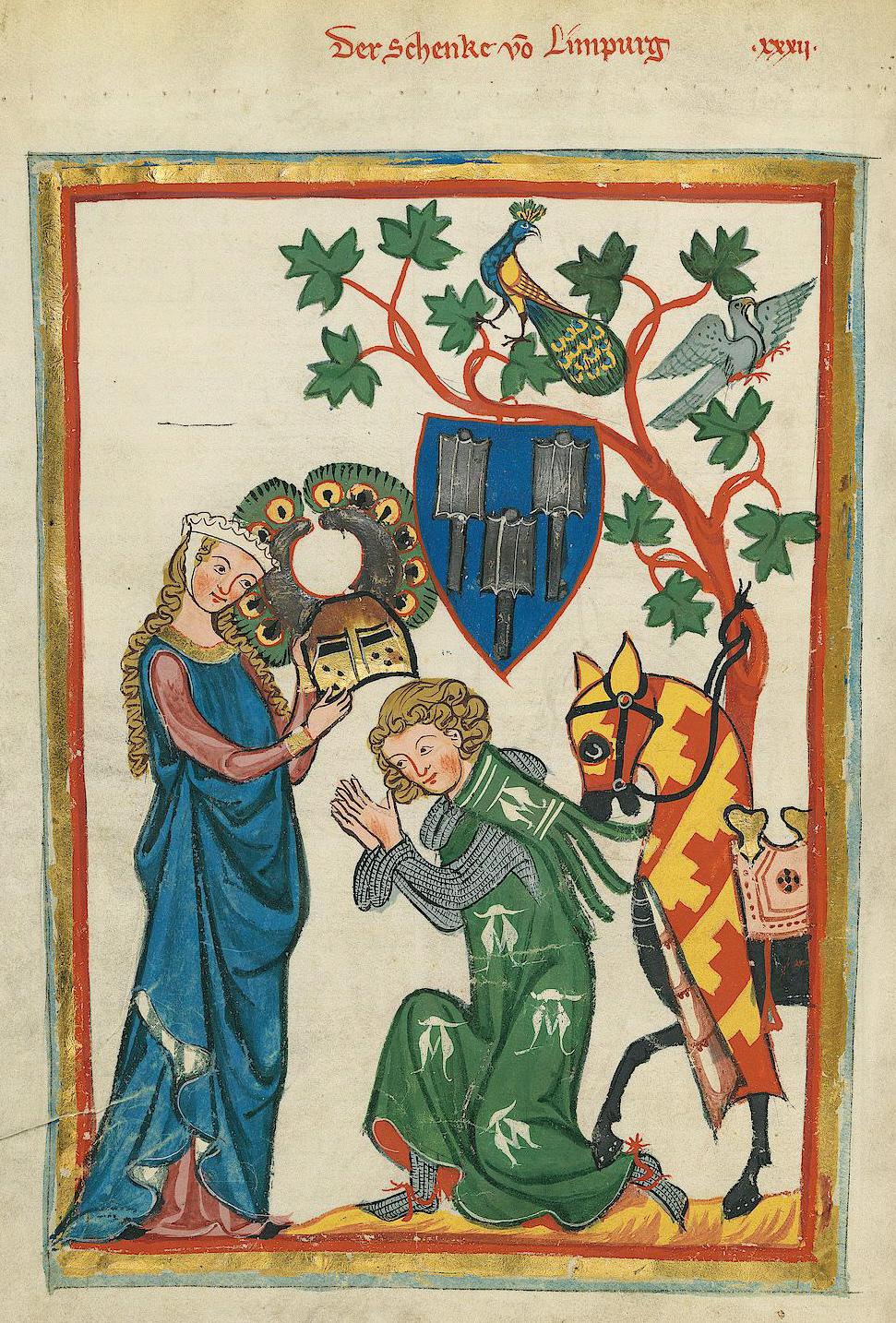Supposedly, medieval knights had their own version of the New Year’s resolution. One by one, during the last feast of the Christmas week, they would place their hands on a live or roasted peacock and recommit themselves, for the next 12 months, to the ideals of chivalry. Charles Dickens wrote about these oaths in a Victorian periodical he founded, All the Year Round.
The most celebrated of all the vows of chivalry were those that were called “The Vow of the Peacock,” or of “The Pheasant.” These noble birds—for so they qualified them—perfectly represented, by the splendour and variety of their colours, the majesty of kings during the middle ages, when, superbly arrayed, they held what was called “Tinel,” or full court, corresponding with the “Drawing-room” of modern times. The flesh of the Peacock (or of the Pheasant) according to the old romances, was the peculiar diet of valiant knights and heart-stricken lovers, and its plumage was considered by the Provencal ladies the richest ornament with which they could deck the crowns they bestowed on the Troubadours, as rewards for the poetical talent displayed by them in singing the praises of love and valour. But it was on the day when a solemn vow was made that the Peacock (or Pheasant) became the great object of admiration, and whether it appeared at the banquet given on these occasions roasted or in its natural state, it always wore its full plumage, and was brought in with great pomp by a bevy of ladies, in a large vessel of gold or silver, before all the assembled chivalry. It was presented to each in turn, and each made his vow to the bird, after which it was set upon a table to be divided amongst all present, and the skill of the carver consisted in the apportionment of a slice to every one.
First of all, this sounds like a fabulous New Year’s party—though it is not actually clear, from the excerpt, that the peacock vow had much to do with the New Year. (The sourcing for the oath-as-proto-NY-resolution legend is dubious.) But can we agree that, real or myth, the peacock vow is a far superior tradition to what we have today? Our resolutions are uniform and unimaginative: Get in shape. Get organized. Lose weight. Most of all, they are all inward-looking. They aspire to self-improvement (the motto “you do you” graced the “in” column for the Washington Post’s 2014 In/Out List). But the peacock vow faces outward, outlining a code of conduct that ripples into the lives of others. It’s a social gesture: In the symbolic ceremony, everyone receives a piece of the roasted meat.
I was thinking about this—peacocks, olde-style courtesy—as I took a train from Washington to New York on Monday. I was struggling with a large suitcase. There were plenty of able-bodied men and women around, but the person who ended up hoisting the other end of my bag (my knight!) was a silver-haired gentleman with quivering arms. I felt terrible accepting his help. It was clear, though, that he was acting out of chivalry, his solemn sense of what he owed a woman he’d never met. The experience made me wonder about people closer to my own age: Do we feel obligated by manners the way our parents did? Why don’t ladies help one another, or even men, with heavy bags? When was the last time I’d partnered with a woman I’d never met to slay a dragon/shove her overstuffed purse into an overhead compartment? Why do we always ask if men should give up their subway seats for a pregnant woman or elderly passenger rather than just asking (demanding) that we all do? Whither feminist chivalry? Whither regular chivalry?
The answer to all these questions may not involve proclaiming oaths over a large cooked pheasant while waving a sword around. But I propose we nix our self-indulgent, “you do you” neurotic New Years resolutions and bring back the peacock vow. In our culture of relentless self-perfection, we could use the reminder that sometimes graciousness beats out flawlessness.
